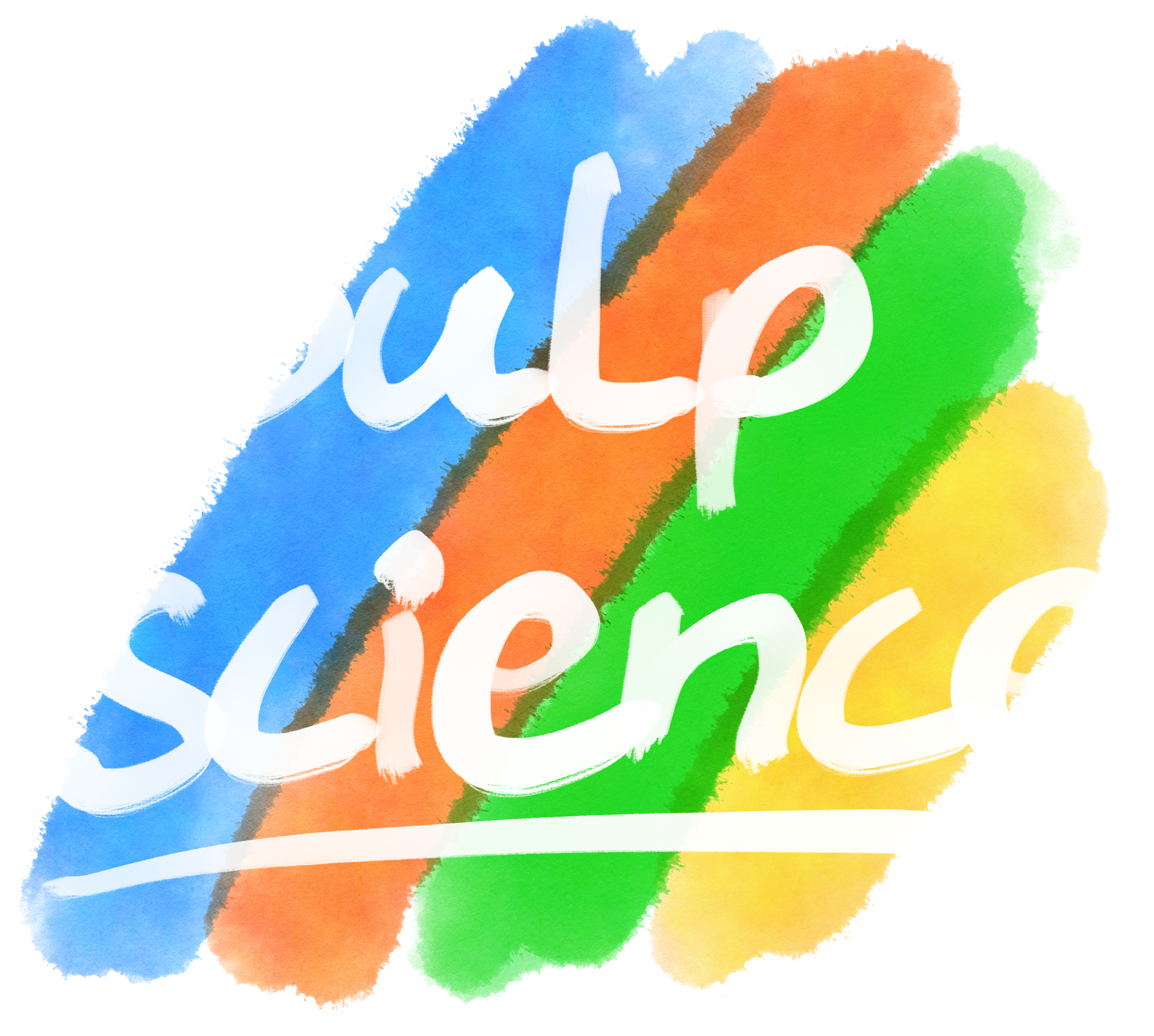
Have you ever thought about the engineering and science that goes into the device you’re reading this on? Modern computers (and smartphones, etc.) are very intricate machines. In fact, they are so incredibly complex that no single person in the entire world knows how to build one. In a way, a computer is the perfect example for what makes humanity successful. Let me explain.
A computer is assembled from various electronic components, of which the most important ones are of the semiconductor/microchip variant. These components are integrated into a system by very smart people, who know all about timings, signals and connections. However, those people do not understand how the components themselves actually work or how they are fabricated.
Designing and fabricating microchips takes a different group of extremely skilled engineers. They typically work in huge, codependent teams where everyone is focussed on designing a special part of logic. Another team then takes their plans and uses them in an almost magical process called lithography, which has been perfected over decades and can be performed only with very rare equipment. The whole process of designing and fabricating microprocessors is in itself so complicated, that it has to rely on computers and specialised software. Even the silicon necessary for microprocessors is so hard to produce and refine that there are specialists for only that. We’re not done yet.
How does the microprocessor engineering team even know what they have to design? Informatics. How do they know they can build logic gates from transistors and how the heck do they work? Physics. And even if we have the knowledge of semiconductors and transistors and logic gates and technical informatics and lithography and chip design and electrical engineering and system integration, what do we do with it?! Turns out, the software side of things is equally complicated. No single human being could program a modern operating system, let alone all of the programs that run on top of them to enable the internet and everything else we do with computers.
You can still read this article, which means that we somehow can build computers. The magic ingredient to make it all happen is called specialisation. This means that humanity has figured out (long ago) a way to circumvent the limitations of the human mind. Analogously to symbiosis in the biological world, humans work together to achieve something that is way beyond what a single person could ever hope to achieve or even just understand. To me, this is nothing short of mind-shatteringly amazing and even a little frightening.
But specialisation sucks! As an aspiring scientist, I want to absorb as much knowledge as possible and just understand everything. I don’t want to leave gaps in my knowledge which I know could be filled with even more amazing science. It is extremely frustrating to acknowledge everything about the world and our universe that I’m already too old and narrow-minded to ever understand. Eventually, I will have to give in to the fact that I too have to specialise. This is the reality of science and knowledge: humanity has come so much farther than any single person ever could, and it is impossible to catch up.
This also means that there will be no more Noethers, Einsteins, Mendels or Turings. Todays scientists and engineers are somewhat prohibited from making interdisciplinary connections and discover or invent something truly groundbreaking. Instead, we see painfully slow bite-sized progress, hopefully (consider this a teaser for an article about open science!) documented and shared in journals, on GitHub or simply peer-to-peer.
The state of (natural) sciences should also tell us something about experts: whenever you see experts in the media, take a good look at their specialisation! There is no such thing as an expert in physics or biology. There isn’t even an expert on climate science. But someone could be an expert on the carbon cycle, on the physics of the atmosphere or on numerical climate modelling. Scientific facts are negotiated between all members of the scientific community and specialists can persuade other scientists of a point of view which would be hidden to them otherwise.
As frustrating as the need for specialisation may be for me, it is probably a good thing. Scientific progress has surpassed individual genius and is now driven by an abstract, global force. The only thing left to do is to participate and marvel at it.


2 replies on “Specialisation is awesome, and I hate it.”
I guess nowadays it’s less about connecting the disciplines yourself but rather about being connected with researchers from different disciplines to unite that dispersed knowledge? The obvious problem is that some links may only be discovered if one speaks both languages instead of having to translate continuously. It’s hard to alleviate that because any intermediate party distorts the connections…
I think this depends on the type of research and how openly it is conducted. If some computational physics research group maintains a public GitHub repo, you can jump right in and just work off their (perfectly documented, haha) material. If, on the other hand, Google only publishes carefully curated results about their latest quantum computing advancements, you really have to know someone who works there or even work at Google yourself. I think completely open science is in general more impactful and useful. But I also see that networking has become an important part of being a researcher…
Language is another huge thing. Not so much in theoretical physics, since everything is expressed in the universally understood languages of maths and code. But especially psychology, social sciences, etc. suffer from language constraints. Either because foreign research is not published in English and has to undergo a lossy translation, or because poor verbal skills limit researchers’ abilities to properly express their findings.